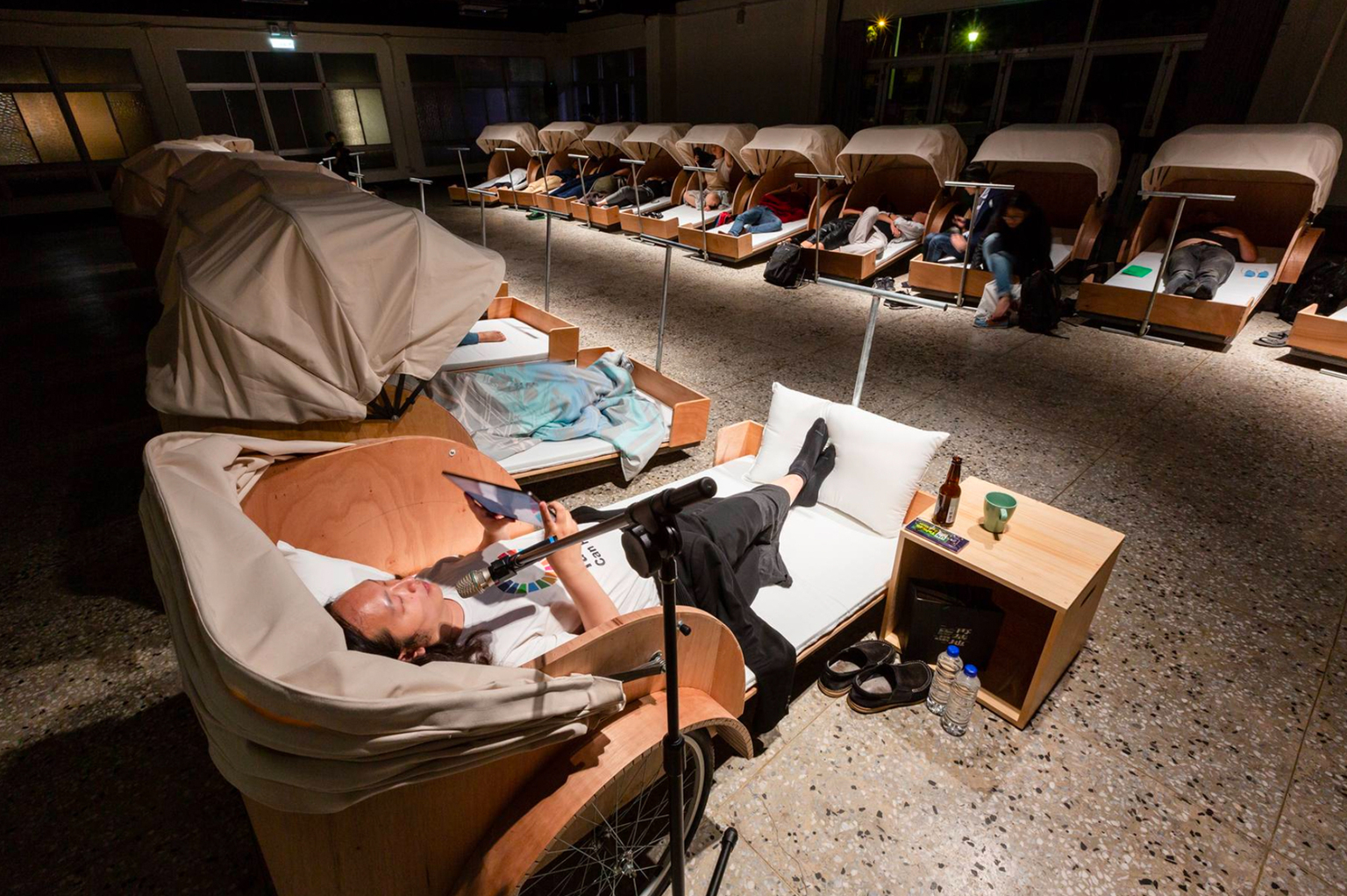Forelesning

Art & Craft lectures: Matthew Fuller: Art as Metadiscipline
Twenty-first century artists have increasingly worked on the problems and the modes of enquiry of other disciplines and fields. The findings, styles of thought, and habits of operation and conduct of the sciences, sociology, mathematics, literature, governance and education, amongst others, have become resources for reworking and expanding. They are used to probe questions of power, imagination and invention, but also to rework the condition of the aesthetic more broadly.
This expansion of art has multiple roots. Some are to do with the changing terrain of post-conceptual art and its multiple tendencies in the context of the changing condition of the the disciplines more broadly, including developments such as the new humanities or posthumanities. Other factors include an engagement with sciences and the adoption and alteration of their working methods or their interpretation at a tangent to more traditional forms of interdisciplinarity. This includes approaches ranging from treating disciplines and their objects as “found objects” or elaborating techniques of mutual interest. Others rework the idea of art into a process of learning and becoming in education or in forms of political and ecological direct action or speculation. Importantly, digital media and computing provide both a conduit and terrain for these shifts, as well as a key subject of and means for art's widening reformulation.
These tendencies suggest that art is emerging as something that can be called a meta-discipline: a mode of work whose operation includes both working in other disciplines and acting upon them. Mathematics and philosophy have been key meta-disciplines for a long period. They work in and on both the conditions of possibility and the working matters of other fields.
Art has historically been allocated the role of working on sensation and feeling via representation. In the present, art also works on concepts, institutions, techniques and information, including the workings of these prior-metadisciplines. This talk will examine aspects of the genealogy and potential of this tendency.
Matthew Fuller’s books include How to Sleep: The Art, Biology and Culture of Unconsciousness (Bloomsbury 2018), How to Be a Geek: Essays on the Culture of Software (Polity 2017), with Olga Goriunova, Bleak Joys: Aesthetics of Ecology and Impossibility (Minnesota 2019) and with Eyal Weizman, Investigative Aesthetics: Conflicts and Commons in the Politics of Truth (Verso 2021). He is a member of the editorial collective of ‘Computational Culture, a journal of software studies’ and Professor of Cultural Studies at Goldsmiths, University of London.
The Art and Craft Lectures is an annual lecture series devoted to art education, research, theory, and politics. The program, curated by Sara R. Yazdani and Susanne M. Winterling, nurtures an interdisciplinary exchange of practice and theory.
The fall 2024/spring 2025 program un/folds connections between materials and bodies. From the perspective of art and craft, we wish to consider the fold as an artistic and academic method and tool to understand materials and their interconnections with machines, bodies, techniques, and space, as well as culture, politics, and affective relations in the world.
Taking a collaborative approach to practice and research, the lecture series seeks to generate inspiration, critical navigation, and community across the arts. It invites scholars, artists, and curators from different disciplines to give a traditional keynotes or conversations that guide the semester, and as a platform for students and faculty to share and discuss practice, concerns, and inspiration, with an open door to the public.
The Art and Craft lectures take place in the main auditorium, KHiO, on Thursdays at 3pm CET, or on Zoom. The lectures are free and open to the public.